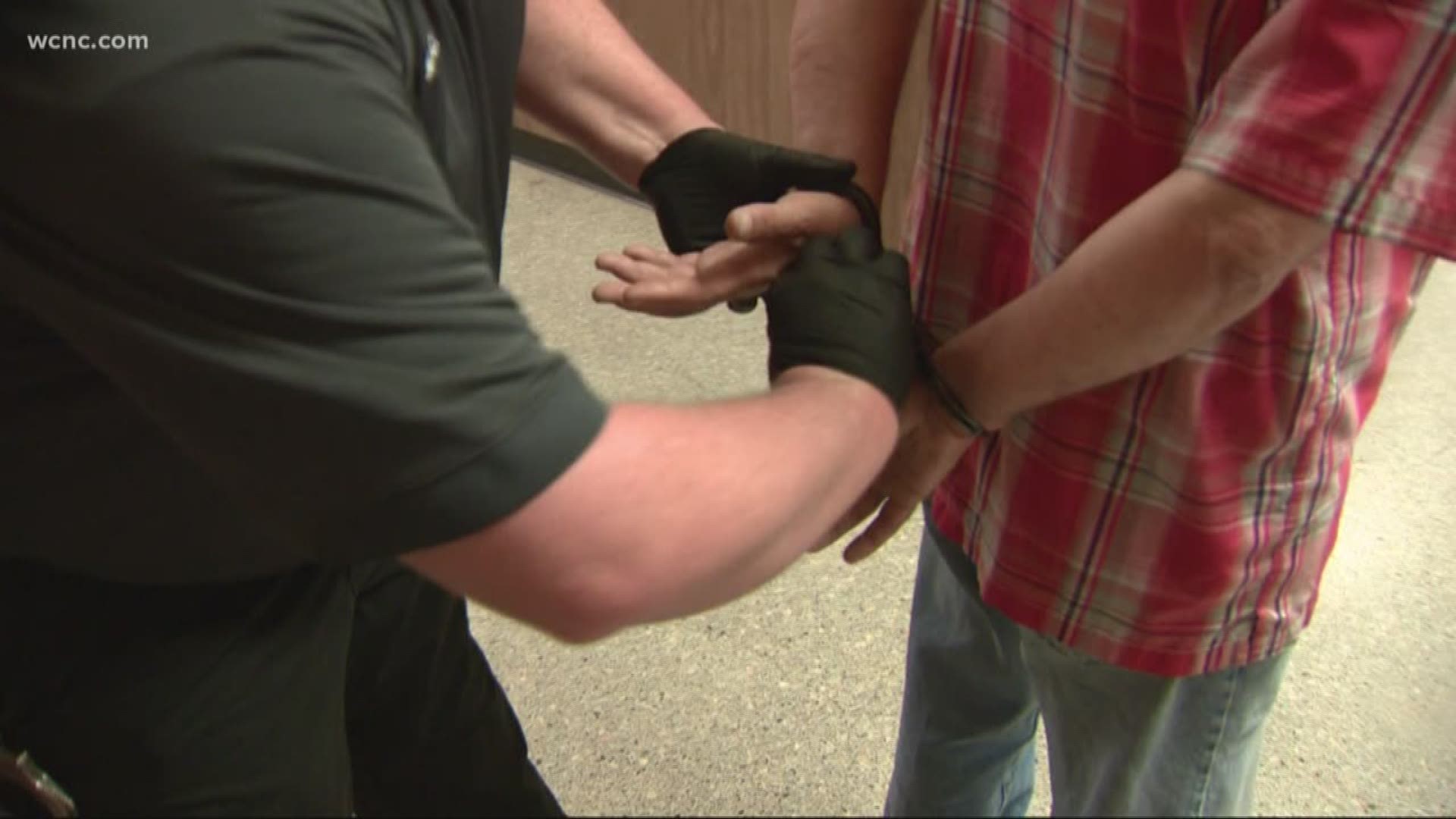NORTH CAROLINA (WCNC) -- More than 3,100 criminals, many of them convicted of violent crimes, are living in their homes instead of prison cells, according to state records. Judges placed the convicts under house arrest and curfew with electronic monitoring. Police arrested one of them for murder this summer.
State records show investigators arrested Akeem McIver, previously on electronic house arrest, and charged him with first-degree murder in connection to a Fayetteville murder in July.
North Carolina Community Corrections reports people on house arrest can only leave their homes for jobs, treatment and education. Considered a better alternative than getting locked away for some, house arrest is a privilege for a select group of criminals, including some serving time on the outside for crimes like assault, rape and even murder, according to NCCC records. Our analysis of state data shows people all across the Charlotte area afforded the opportunity of house arrest, including a man in Salisbury convicted of murder, people convicted of drug crimes in Hickory and several rapists, robbers and a habitual burglar in Charlotte.
The director of NCCC said, in addition to monitoring by probation and parole officers, those people are also monitored electronically. Tracy Lee added, just because they're convicted of a serious crime doesn't mean they're a serious risk.
"If they leave the house when there's not leave time, then there's an automatic response to that," the director said. "I don't think you can make a blanket statement about any one person who is on electronic house arrest."
While there are people under electronic monitoring who don't follow the terms of their release, cutting off their ankle bracelets and committing new crimes, the director said overall, house arrest is a "very good program" that works well. Lee said in the instances when someone re-offends, his agency works closely with police by sharing information with investigators, knowing when a crime is committed in a neighborhood a person under house arrest could be one of the first people under suspicion.
As WCNC reported in July, roughly 13,000 people on probation and parole are considered absconders.
In just a two-week period, police arrested some of those people for hurting and even killing people.

